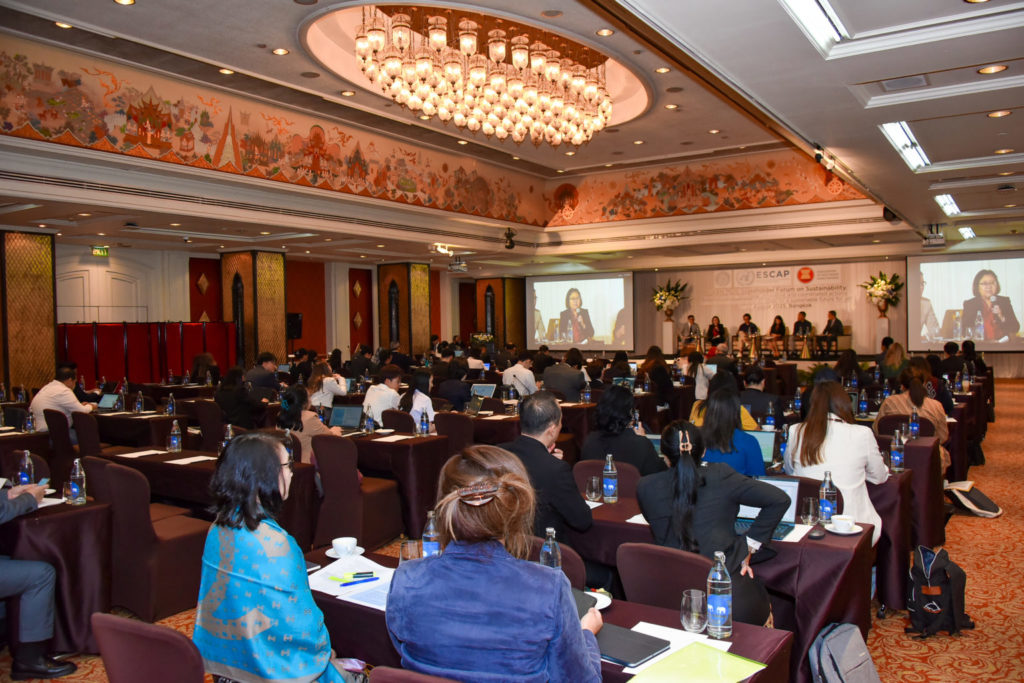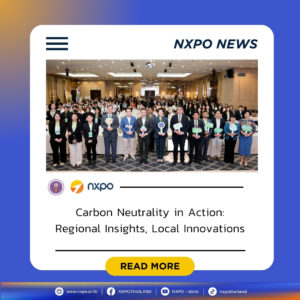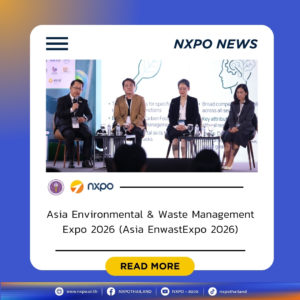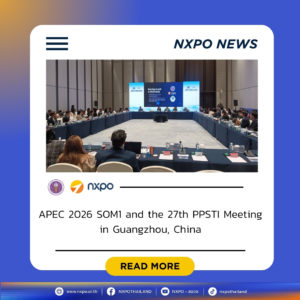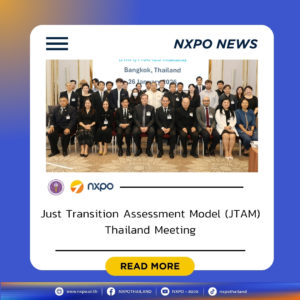On 22 August 2025, NXPO joined the ASEAN Multi-Stakeholder Forum on Sustainability under the theme “Transformative, equitable, innovative and coordinated actions for the 2030 Agenda and its SDGs for a sustainable future for all.” The event was co-hosted by the Ministry of Foreign Affairs of Thailand, the ASEAN Secretariat, the United Nations Economic and Social Commission for Asia and the Pacific (UN ESCAP), and the Government of Türkiye.
A session on “Digital Shifts, Human Impacts: Building Inclusive Innovation Ecosystems for South-East Asia’s Workforce” focused on SDG 9 (Industry, Innovation, and Infrastructure) and SDG 17 (Partnerships for the Goals). Discussions emphasized two priorities: harnessing digital technologies to drive economic growth and ensuring inclusivity so that no one is left behind.
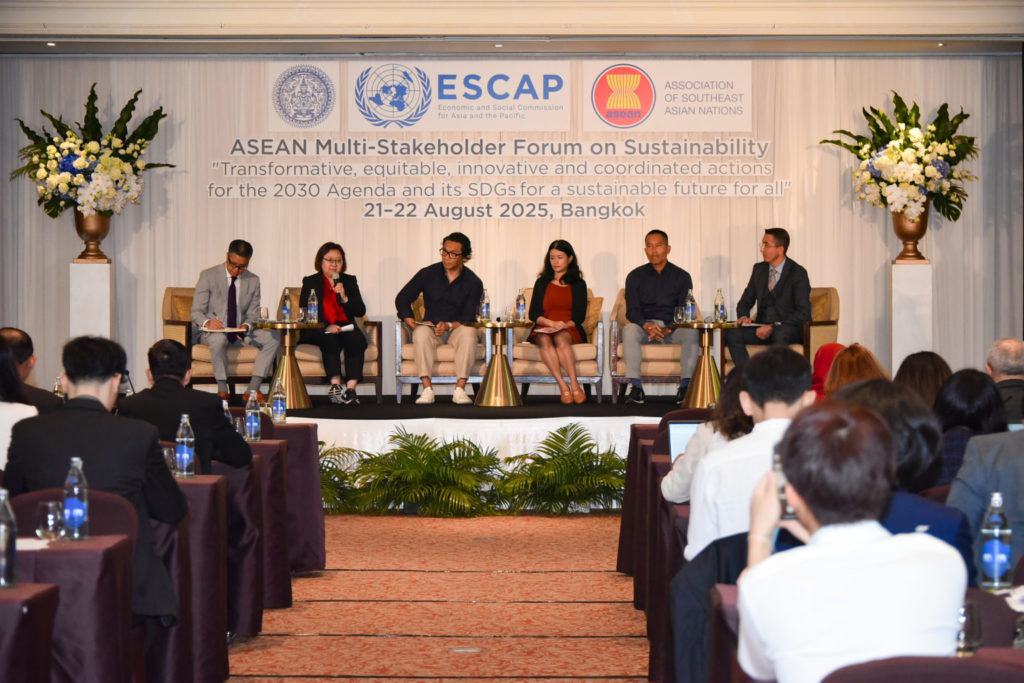
Panelists included representatives from multiple sectors: Ms. Kanokkarn Suksuntichai, Director of ASEAN Unit, Bureau of International Cooperation Office of the Permanent Secretary, Ministry of Labour, Thailand; Mr. Kasima Tharnpipitchai, Head of AI Strategy, SCB10X; Mr. Des Teso, Director for Corporate, External and Legal Affairs, Thailand, Viet Nam and Emerging Markets, Microsoft; Mr. Hüseyin Özen, First Secretary, Ministry of Foreign Affairs, Türkiye; Ms. Tannaree Jaruprasit, Southern Riders Association of Thailand; and Dr. Pranpreya Sriwannawit Lundberg, Director of International Policy Partnership, NXPO.
The panelists shared insights and experiences from their respective sectors. Ms. Kanokkarn stressed the need for ASEAN’s labor cooperation framework to adapt to digital transformation by enhancing digital skills, reskilling/upskilling informal and marginalized workers, and developing infrastructure and policies that support lifelong learning. Mr. Kasima highlighted barriers to digital innovation and proposed open-source AI tools, such as Typhoon, as a means to create accessible and equitable ecosystems. Mr. Teso emphasized the private sector’s role in offering free software and training, and in fostering collaboration among governments, academia, and businesses to build an inclusive digital society. Mr. Özen provided a global perspective on resource inequalities in achieving the SDGs, citing Türkiye’s approaches and underscoring the importance of leadership, connectivity, and international cooperation. Ms. Tannaree underscored the importance of digital literacy in daily life—from job seeking and communication to healthcare access—and noted how technology also enhances personal safety, especially for women.
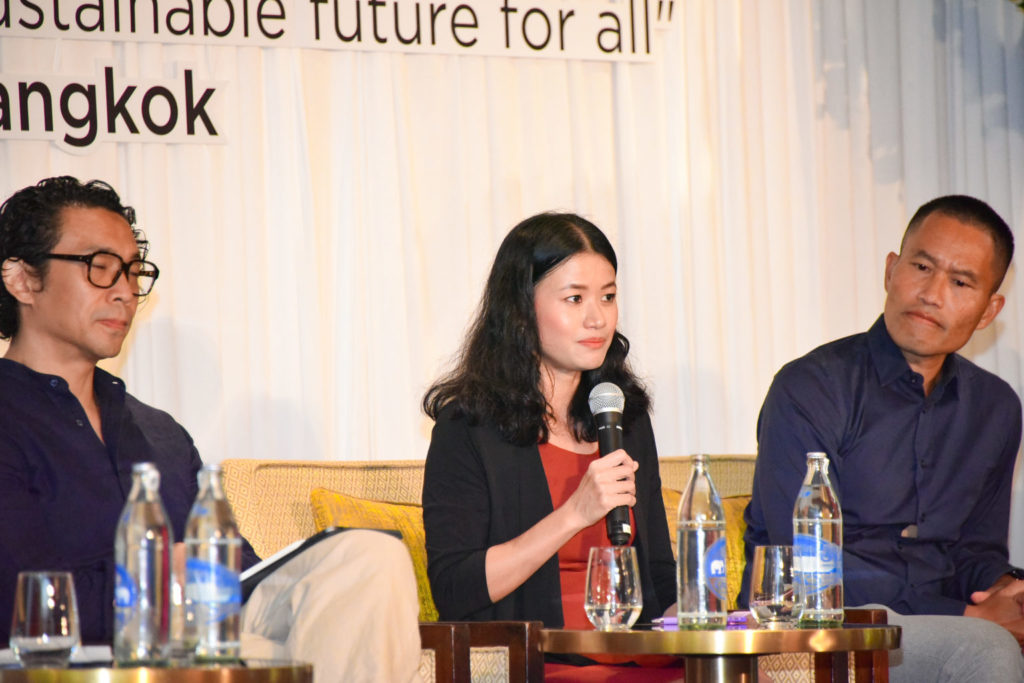
Dr. Pranpreya presented the missions of the Ministry of Higher Education, Science, Research and Innovation (MHESI) and NXPO in advancing inclusive education, lifelong learning, and workforce development through initiatives such as the National Credit Bank and “MHESI for AI”. She also introduced the Thailand Talent Landscape 2025–2029, which identifies high-skilled workforce needs in priority industries, stressing that Inclusive – Adaptive – Collaborative strategies are key to a sustainable digital transition.
The forum reflected ASEAN’s collective digital transformation journey, emphasizing inclusivity as the foundation of progress. Key strategies include expanding educational and lifelong learning opportunities, strengthening the role of the private sector through multi-stakeholder partnerships, narrowing resource gaps via international collaboration, and promoting digital skills to enhance quality of life and safety. These efforts embody the principle of “Collaboration for the Future”, laying the foundation for an equitable and sustainable digital innovation ecosystem to drive ASEAN’s long-term development.
